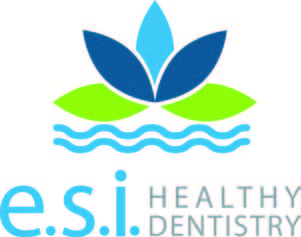If I were to offer you a magic mouthwash that would be the single thing you have to do to have fresh breath, clean, white teeth, and healthy gums, would you be interested? Turns out that the mouthwash industry is a billion-dollar business. Yet, I wonder if it’s really effective — but more importantly, does it do more harm than good?
Many oral healthcare providers recommend an oral rinse as an adjunct to daily brushing and flossing. Spoiler alert: if you have teeth, there is no way around basic hygiene. No magic mouthwash, no hack, no special technology. Just brushing and flossing. To quote an old saying: you don’t have to floss all your teeth, just the ones you want to keep.
But many of us like using mouthwash because we get that fresh feeling. A recent study shows that 40% of us have never used it while 25% use it daily. Compared to healthy people, mouthwash users reported having gum disease, oral infections, and lesions.
Not all mouthwashes are created equal. There are natural ingredients like essential oils and chemicals like cetylpyridinium chloride (CPC) that kill bacteria. Other ingredients are zinc, ethyl alcohol, propylene glycol and sodium lauryl sulfate (SDL). Incidentally propylene glycol is antifreeze and SDL is a laundry detergent.
Here are a few things to investigate: Does mouthwash truly treat bad breath at its root cause? Does it dry out your mouth? Does it wreck your oral microbiome? Does it have ingredients that are toxic and can harm you?
If you are using mouthwash daily without routine dental care, you may be masking an underlying disease. Bad breath may be an early indicator of periodontal disease. Some rinses do contain ingredients such as alcohol that cause xerostomia, or dry mouth. This gets exacerbated if you take certain medications. A dry mouth can lead to more concentrated bacteria. It also leads to a decrease in pH, decreased buffering capacity, sensitive, weaker teeth which can be prone to erosion, cavities, fractures, gum infections, bad breath, and mouth sores.
When you introduce an antimicrobial substance in the mouth, you kill certain organisms, but this allows others to grow in high numbers. We call that an opportunistic infection. What’s worse is that these bacteria get smarter with time, they recognize the chemicals and mutate so they develop resistance to the antimicrobial. This can lead to a significant disharmony of your normally balanced oral microbiome which, in turn, can negatively affect your gut flora, digestion and absorption of vitamins, nutrients and minerals. We need certain bacteria and micro-organisms for optimal health. Frequent use of mouthwash can reduce nitrate producing bacteria. We need these little guys to produce nitric oxide for vasodilation, elasticity of our blood vessels and proper cardiovascular health. It’s no wonder that studies show that overuse of mouthwash can result in high blood pressure.
The ideal oral rinse should function as a mechanical cleaning medium that has a power washing effect to help flush out debris from the oral cavity including the tongue, gums, teeth, and pharynx. It should be harmless, slightly alkaline, and would function as a dilutant. The solution to pollution is dilution!
I will leave you with a DIY tip: Mix 8 oz of water, 1 teaspoon of salt, 1 teaspoon of baking soda, a drop of peppermint and you have a harmless, natural, healthy oral rinse. For whitening, add hydrogen peroxide. (Please consult with your oral healthcare provider first).
 Jimmy Kilimitzoglou, DDS, FACD, FPFA, DABOI, MAGD, FAAID, FICOI
Jimmy Kilimitzoglou, DDS, FACD, FPFA, DABOI, MAGD, FAAID, FICOI
ESI Healthy Dentistry
42 Terry Road, Smithtown, NY 11787
Tel (631) 979 7991 / Fax (631) 979 7992
dental@esihealthydentistry.com
www.esihealthydentistry.com
– ADVERTORIAL –




















